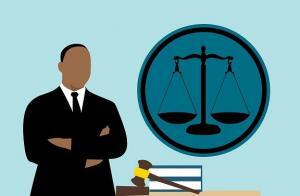
Collecting unpaid accounts receivable is difficult. Whether you are collecting from a consumer of another business, you have multiple avenues to explore and multiple rules and regulations to follow. Sometimes, when all avenues have been exhausted, the only way to give yourself a chance of recovering the money you are owed is through legal action. Using an attorney to help in the debt collection process can be incredibly effective but also comes with its own challenges. Here is what you need to know about taking legal action to recover a debt.
- Nearly 20%-25% of all civil lawsuits are related to debt collection.
- Only about 25% of debtors attended their court hearing.
- 7 in 10 cases result in a default judgment because the debtor fails to show up in the court.
- With a court order, a debt collector can garnish wages, place liens on the property, and freeze bank accounts.
- Between 3 million to 5 million debt claims are filed in US courts.
The Power of Legal Action
Unfortunately, when you are trying to collect on an unpaid invoice, sometimes your best efforts are not enough. Debt collection practices are governed by a certain set of rules and regulations which are meant to limit the amount and type of pressure a debt collector or a debt collection agency can put on a debtor. When these options fail to produce results, the next step is legal action.
Legal action can be an incredibly effective tool in debt collection. It creates intense pressure on a debtor who will not respond to other, less aggressive collection methods. These tools can range from an attorney simply sending recovery demands on law firm letterhead to taking legal action in the court, in front of a judge. An attorney can legal action to recover money owed.
When legal intervention is needed in the debt collection process, it is important that it is used in a way that keeps the most important goal in mind which is collecting the money owed. This is why it makes sense to let a debt collection agency handle any legal action you need to take on a debtor.
Why a Collection Agency Should Handle Legal Action
The best reason to let a debt collection handle the legal process is that it is a lot cheaper and a lot less stressful to do so than when you do it yourself. Pursuing legal action with a debtor yourself means paying a lawyer or law firm astronomical fees to do this for you and taking time to meet and consult with lawyers and possibly even having to spend time giving depositions or in court.
When you work with a debt collection agency, legal action will be included as the final step of their process. They will have lawyers on staff or on retainer who specialize in this type of law and know exactly when and how to best escalate the legal pressure to achieve the ultimate goal of being paid in full. This will save you a lot of money, stress, and time.
The truth is, even if the issue goes to court and a court order is issued in your favor, many debtors will still not pay. This leaves creditors with no more options and they will be forced to eat the loss. When you allow a debt collection agency to work the legal system for you as a tool, not just as a last resort, they can work towards a settlement out of court and your chances of recovering what you are owed are much better.
The other thing you do when you outsource legal action to a debt collection agency is you separate the collections and legal process from your relationship with the client. Just because a customer goes into collections – even to the point of legal actions – doesn’t mean that they can never be a good client again. Even if that does not or cannot happen, using a third party to deal with the collection process can protect your business’s reputation and good name.
Need a Collection Agency to recover money: Contact Us
Conclusion
No one wants to end up in court for anything, let alone an unpaid debt. This is a big reason why legal action, or even the threat of legal action, is such a successful debt collection tool. To make sure you are using this tool in the most effective and efficient way possible, let a debt collection agency handle that part of the collection process.